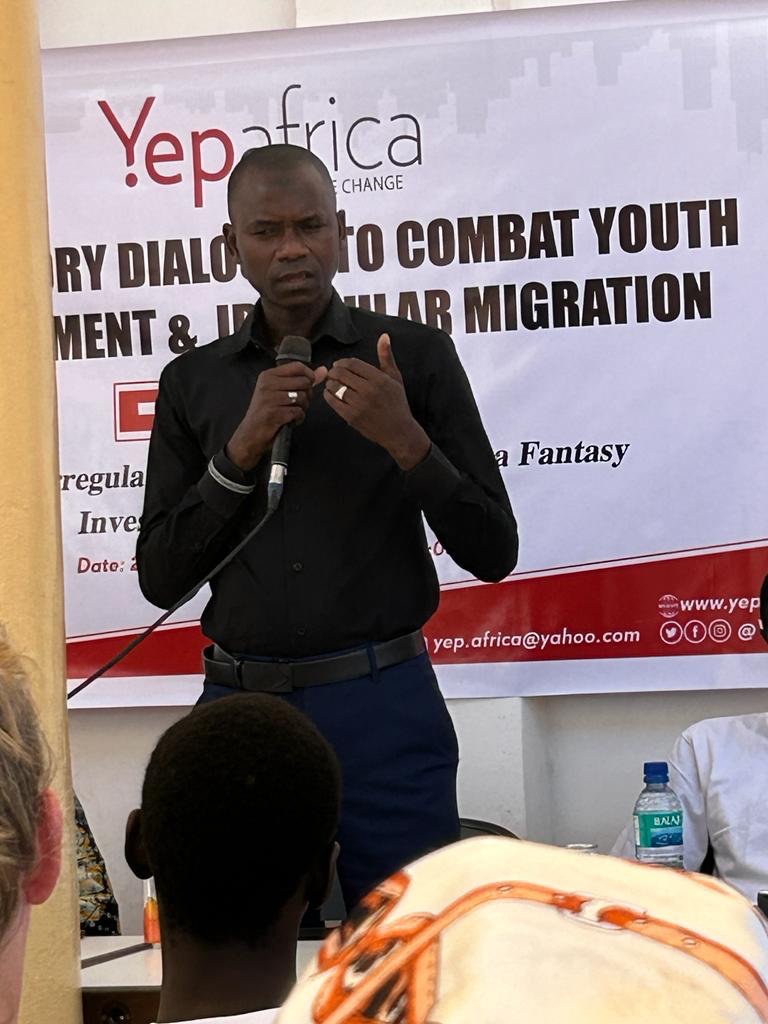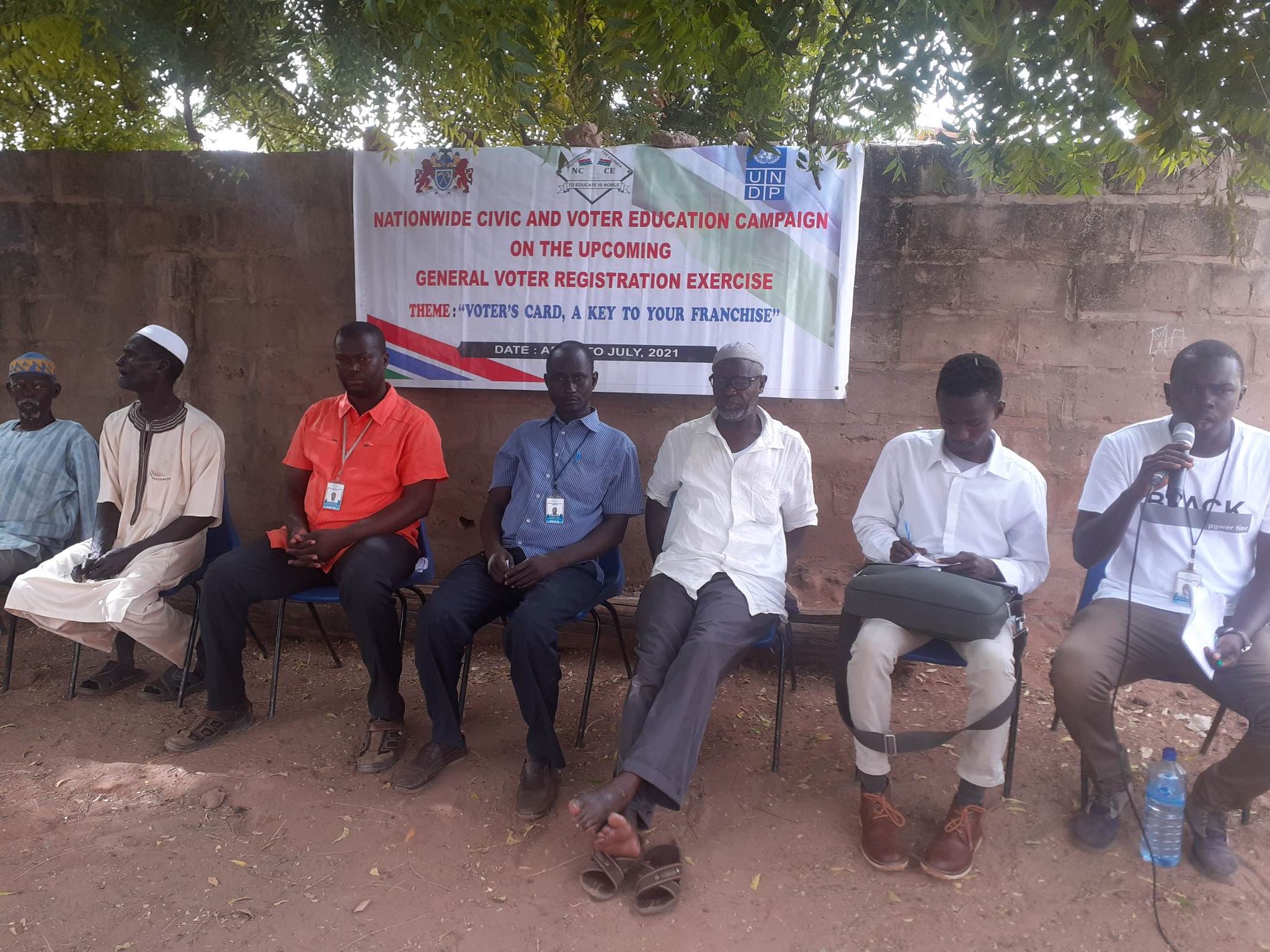The Voice Reporter
The desperation by young people in Africa to reach Europe through irregular migration popularly known here as ‘’Back Way’’ a dangerous journey to Europe for greener pastures is not only associated with unemployment but also associated with poor conditions of service in the country.
In the same vein, the Program Manager of the National Youth Council (NYC) Ismaila Badjie has also challenged the common phenomenon that irregular migration is being ignited by unemployment; according to him low wages also contributed.
Mr. Badjie was opportune to share his experiences on the topic under review hosted by YEP Africa to map out strategies to resolve youth unemployment and irregular migration and he was able to reference a recent joint survey carried out by the International Organization for Migration (IOM) and the National Youth Council (NYC).
He strongly disagree with people on the common notion that unemployment is the sole factor for irregular migration but it is a matter of wait and see when the final survey report will be officially released with contrary discoveries.
“We went round the country to talk to the people to know what the drivers to irregular migration are. Yes, people are attributing it heavily to unemployment, but I will tell you that, it is not unemployment that is driving young people out of the country. Some will start to say ‘is he crazy?” or “Is he mad’? I am not crazy. I am not mad. I was in the field and I spoke to Young people and their parents, and I got feedback from them, and the report that we got from the survey is about to be released very soon,” he said.
Badjie advanced instances of employed individuals, including graduate teachers, police officers, soldiers, and fire officers, were engaging in irregular migration. This led him to the conclusion that the driving force behind such journeys is the inadequate salary structure. He highlighted the financial struggles faced by many, citing a monthly salary of D10, 000 as insufficient, especially considering the high cost of living and dependency rates in the country.
“I saw graduate teachers embarking on the back-way journey; who can tell me those people are not employed? I saw police officers leaving their jobs and going on the back way, I saw soldiers leaving their jobs; I saw fire officers leaving their jobs. Are these people unemployed?” he asked.
In addressing the misconception that only unemployed youth take the back way, Badjie acknowledged their existence but stressed that abandoning jobs to seek better opportunities abroad is also a prevalent trend. He concluded that the key motivating factor for youth opting for the back way is the insufficiency of current wages, rather than a lack of employment opportunities.
“Yes, there are unemployed youths embarking on the backway Journey, but there are also people who abandoned their jobs to go on the backway Journey. Now the question is, “What is the driving force, then? The driving force is the salary structure. This is a fact. How many people go home with a D10, 000 salaries every end of the month in this country? And even with those ten thousand dalasis, you will agree with me that the dependency rate in this country is very high.
“Ten thousand Dalasis? What can that do for you and your family for thirty days? Can it sustain you for thirty days? You have a friend that you are moving with; he embarked on the journey, and you are here with a salary of ten thousand Dalasis a month. The friend embarked on the journey, and two years later, he’s building a Mansion. And you are here and cannot even afford a bicycle. Now this is what is pushing our youth to take the back way. Not the unemployment,” he said.





